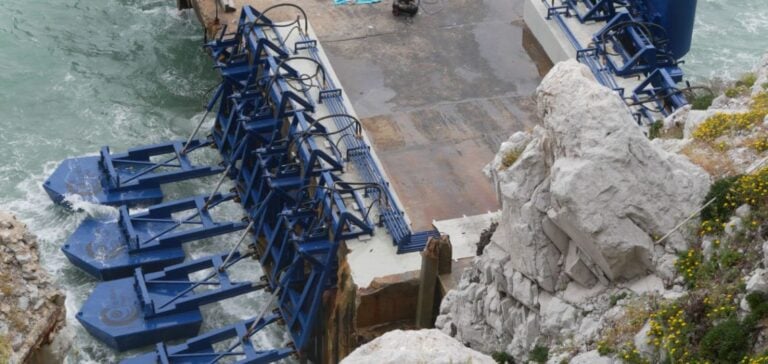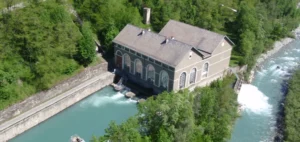Israel’s first wave energy power plant, developed by Eco Wave Power in collaboration with EDF Renewables IL, was officially inaugurated. This unique project, located in Tel Aviv-Jaffa, signifies a major advancement in renewable energy for Israel and the Middle East. The technology, harnessing the motion of waves to generate electricity, is now integrated into Israel’s national grid, addressing the growing demand for sustainable energy.
Often cited as a global pioneer in technological innovation, Israel solidifies its position with this pioneering plant. The project received support from the Ministry of Energy and Infrastructure, the Ministry of Environmental Protection, and the Tel Aviv-Jaffa Municipality. Energy Minister Eli Cohen lauded the achievement as a critical step toward diversifying the nation’s energy sources and reducing pollution.
An Innovative and Sustainable Technology
The power plant employs floaters installed nearshore, mitigating the challenges typically associated with offshore installations. These floaters convert wave movements into mechanical pressure, which drives hydro-motors to generate clean and stable electricity. This innovative approach, supported by advanced automation, ensures storm protection and efficient energy transmission to the national grid.
EDF Renewables IL, a strategic partner in the project, played an integral role in providing expertise and resources to design and operate the plant. According to Ayalon Vaniche, CEO of EDF Renewables IL, this partnership exemplifies an exemplary collaboration between Israeli innovation and international expertise.
Regional and Global Impact
The project also highlights Israel’s ability to develop technologies with global significance. Eco Wave Power CEO Inna Braverman emphasized that this technology transcends political boundaries, offering sustainable solutions to regions critically in need of energy, including Gaza. The technology has already attracted interest from several countries, such as Turkey, Saudi Arabia, and Qatar.
Simultaneously, Eco Wave Power plans to expand its projects internationally, with installations scheduled in Los Angeles, Taiwan, and Portugal. This expansion underscores the global impact of Israeli technology while showcasing its potential on the international stage.
A Strong Message for the Future
The success of this project sends a powerful message: energy innovation can drive economic growth and regional cooperation. Despite challenges such as war and economic instability, Eco Wave Power has achieved remarkable growth, becoming a role model for Israeli entrepreneurs.
This power plant marks the first step in utilizing wave energy in the Middle East. With continued support from governments and corporations, this technology could play a crucial role in the region’s energy transition.






















